- Home
- Pat Conroy
A Lowcountry Heart Page 4
A Lowcountry Heart Read online
Page 4
Word spread that The Boo was critically ill. A rumor had it that he was dying. Along the galleries, cadets gathered to talk, and the rumors began to fly, and nowhere does rumor travel faster than the Corps. Because they are cadets, there is always mischief and always daring, always a sense of humor that is deeper than anything else. A plan was hatched in secret.
At parade the following Friday, the Board of Visitors and General Duckett stood and saluted as the Corps passed in review before them, as they had done on a thousand Fridays before. But this time, parade was destined to be unlike any Citadel parade before or since in the many-storied and many-splendored history of our college. This parade belongs to the ages. When the A Company commander marched his troops off the field, his company was nearing the street in front of Third Battalion where he would issue the traditional order of “Company right, march.” In the first time since The Citadel moved to its new home by the Ashley River, the A Company commander ordered his three platoons to march to the left. He was followed by the commander of Bravo company, of Charlie, of Delta, of Echo, and then by every company in the Corps. On the street between the Third and Fourth Battalions, Alpha Company marched right toward the mess hall and the infirmary, with the entire Corps of Cadets behind them. At the infirmary, the Corps turned left again and only two people on the campus knew what the Corps of Cadets was up to.
The Boo had spent the day shining up. “The cadets won’t care if you’re shined up or not,” Elizabeth Courvoisie said to her husband.
“I expect the Corps to be sharp for me,” The Boo said. “I want to be sharp for them.”
When the boys of Alpha reached his house, and the A Company commander gave the command of “Eyes right,” the guidon snapped in the cool autumn air. The Boo, in uniform, returned the salute with perfect military bearing and held it until A Company had passed. Then he saluted Bravo and Charlie, on down to Romeo and Tango and the Band.
The man who had not been out of his home for ninety days, and the man who had not returned to work for a single day, held his salute as seventeen companies passed in view for a man that none of them knew. Here is the significance of that thrilling, rogue parade, which in the highly structured world of The Citadel was a revolutionary act. The Corps of Cadets broke ranks and all the rules of order that applied to the Friday parade to pay homage to the man who was in charge of cadet luggage. The Corps has never broken ranks to honor General Summerall or Mark Clark or Prince Charles or Ronald Reagan or any member of the Board of Visitors or the generals of any army of the world. The Corps did it once and only once, and they did it for the love of The Boo, a man they knew only by the power of his legend, by the greatness of his story. And nothing moves the Corps like the power of love.
That power has gathered us together tonight. It is here that we will pass in review for The Boo one last time. We will name this room for him and him alone. Lieutenant Colonel Thomas Nugent Courvoisie has now written his name into the stones of our college, long after he wrote his name in our memories and hearts. Once The Boo roamed this campus fierce, alert, and lion-voiced, and his wrath was a terrible thing. He could scream and rant and call us “bums” a thousand times, but he could not hide his clear and overwhelming love of the Corps. The Corps received that love, took it in, felt it in the deepest places, and now, tonight, we give it back at the school where we started out and we give it to The Boo, as a gift, because once, many years ago, The Boo loved us first, when we were cadets of boys and when we needed it the most.
Boo, your bums salute you, sir, and we give you this room, and we do it for love of you and the ring.
Great love…
Hitch-22
A GREAT MEMOIR
DECEMBER 17, 2011
Hey, out there,
Last night, I finished a splendid memoir written by the irascible and charming Christopher Hitchens. It is called Hitch-22, and the title reminded me of the time I found myself talking to a fascinating man at the deep end of a swimming pool in New Orleans. He turned out to be Joseph Heller. I always get a cheap literary thrill whenever I have these chance encounters on the road. I first started admiring Mr. Hitchens when he began writing his bristling, fire-eating essays in Vanity Fair. Over the years he began displaying that rarest of intellectual gifts—the ability and willingness to change his mind and do it in an orderly, well-reasoned way. He writes with a prose style that has teeth and venom and beauty. Hitchens is one of those uncommon writers who seem incapable of writing a boring sentence or thinking a banal thought.
There are surprises galore in this feast of a book, which is an intellectual treasure-house and a reader’s delight. He is tenderhearted and clear-eyed in his portraits of his family and friends. I have always been attracted to male writers who can demonstrate their love and affection for women with ease, yet not draw attention to themselves. In a chapter of admirable clarity, he finally reveals what goes on in those infamous British public schools that have tortured every male writer who ever wrote a novel or memoir about the English path to enlightenment. He clears up the mysteries of that charged, homoerotic environment and does it in a way that is explanatory and not a bit sensational or exploitative.
Mr. Hitchens writes about the importance of friendships as well as any writer I’ve ever read. In his chapter on his long friendship with Martin Amis, he creates a masterly portrait that made me want to be friends with both men and regret that I had once had that possibility in my life, but had failed to make the right move in that direction. Once, a lifetime away, I had been part of the creation of a movie development company, and the first book we bought for our first film was The Rachel Papers by Martin Amis. I had read the book in galleys and knew a hotshot when I saw one. Mr. Amis was a young gun fresh out of the box and he wrote with verve, precision, and cunning. I could have met him, and Hitch-22 made me think not doing so was one of the great errors of my life. The choices I didn’t make are almost as ruinous as the ones I did.
Mr. Hitchens’s portraits of Salman Rushdie, James Fenton, Edward Said, and Susan Sontag are all superb and enlightening. His intellectual life and his curiosity are insatiable. As a political figure, he reminds me of the great George Orwell, and he sprinkles accolades to Orwell all throughout the book. He takes you on journeys to Sarajevo, Kurdish territory in northern Iraq, uprisings and wars in sorrowful countries around the world. Often he places himself in grave danger and he never equivocates about whose side he’s on. I didn’t agree with President Bush’s invasion of Iraq, but Mr. Hitchens makes the best case for that war I ever encountered. His portrait of Saddam Hussein is nothing short of satanic. If you can read what Hitchens has to say about Hussein and not at least reconsider your views on Iraq, I question your capacity to read.
He is the happiest of atheists and a heretic of charming godliness. I know Southerners who have Hitch on their prayer chains after hearing about (not reading) his homage to atheism, God Is Not Great. For some reason, I think these prayer chains will never succeed in leading Hitch to the steps of the Church of God. He sees that the intellectual life of the mind is the only sensible place on earth to be. When the idiot pastor Terry Jones burned the Koran, and the resulting protests among the Muslims of Afghanistan resulted in eleven killed, Christopher Hitchens was certainly not ambushed by surprise. A hell of a book.
Great love…
The Night the Band Played the “Tennessee Waltz”
JULY 21, 2012
Hey, out there,
I was flipping through some old journals of mine. It has caused me much grief that I’ve never been completely seduced by the craft of journal keeping. A laziness of soul takes over, and I abandon most of them over the course of a summer. But I sometimes find that I’ve forgotten something that I’ve been lucky to forget.
On January 11, 2000, an event occurred in the Beaufort First Presbyterian Church that took me by surprise. Once a year, I accompany Mrs. Julia Randel to church, and she always gets the superb choir to sing “Blessed Assurance,” a hymn I fell in love with
when her son, Derril, died at age thirty-four. Tragically, Mrs. Randel has lost two sons, Derril and Randy. She is my mother figure in Beaufort, bequeathed to me when her fifteen-year-old son died in front of me on a baseball field—a transfiguring scene in my boyhood.
After the services ended that day, a stranger tapped me on the shoulder and asked me how I knew Janet Tetu.
I turned around and said, “I had a crush on Janet Tetu when I was in eighth grade.”
“She’s my lawyer in Columbia, a great one.”
I called Janet Tetu Butcher that night. Janet Tetu. They were, at one time, the most magical four syllables in language to me. I fell in love with Janet in the eighth-grade class terrorized by the fiercest nun of my childhood, the dreaded Sister Mary Petra. There was one sweet kid who sat directly in front of me, and he had an intestinal condition. This poor creature would send out thunderous farts a couple of times a day, which brought Petra’s wrath out of its cave. She would clench her fist and knock—yes, I still remember his name—this poor boy out of his chair. During a test in November, this boy let out a fart that could be heard at the White House. Petra looked ready to kill as she jumped out of her chair and made her way to exterminate the gaseous one. To my utter shock, the kid turned and pointed to me, “It was Conroy, Sister. I swear it was Conroy.”
Before I could utter a word in my own defense, Sister Petra had put me on the floor with a fierce right cross that made my ear numb for the rest of the day. Enraged by the injustice, I returned to my seat and my test, and prayed that the trembling kid in front of me would hold his fire for the rest of the afternoon. He turned around to deliver anguished apologies for his action when Petra left the room. I’d forgiven him long before the bell rang.
Later that year, the trollish nun spotted the pretty Janet Tetu passing a note in class. Petra acted like Janet had spit on the Christ child and made her kneel on her knees for an hour, praying for her immortal soul. As we talked on the phone, Janet talked about the traumatizing effect that this punishment had on her; she refused to apply to a Catholic high school after that painful humiliation in front of her peers. I told her I wished she’d passed a note every day during the school year because I had spent a pleasurable and voyeurish hour simply starring at her oval-faced beauty.
Janet admitted she did not remember me at all. Nor could she come up with a single name of her female classmates. The only name she could conjure up was that of the darkly handsome David Keaney, who remains for me to this day the exemplar by which I measure all male beauty. She also remembered liking a boy named Steve.
“That was Steve Lickweg,” I said. “He was a great guy.”
“How do you remember that?” Janet asked.
“I was lonelier than you?”
But Janet had given me some correlation of how I saw myself as a boy—that I was invisible to the world around me. I asked her if she remembered a boy named Paul Kennedy, and she did not. His parents gave him a graduation party at the Officers’ Club at Fort Myers, and I was thrilled to be seated next to her.
“I don’t remember this at all,” she said. “Why were you thrilled?”
“Because I had a crush on you.”
“I didn’t know that.”
“Of course you didn’t,” I told her. “I couldn’t even speak to a girl at that time in my life.”
“I didn’t know that,” Janet said. “Pat, I don’t remember anything you are talking about.”
“Of course you didn’t, Janet. But I can give you a glimpse of yourself that you didn’t know about. I was afraid you wouldn’t talk to me that night. But you were perfectly lovely—charming and friendly and dazzling—everything I hoped you’d be and more. You wore a white dress. You seemed to like me. That meant everything to me. I’ve pressed the memory of that night to my heart a dozen times and it happened over forty years ago, Janet Tetu.”
“You put my name in Beach Music. That’s how I found you.”
“I’ve tried to thank everyone who was nice to me in my childhood—the list is not large.”
“There’s something you don’t know about me, Pat.”
“What’s that?”
“I stood in line to get Beach Music signed in Columbia.”
“Why didn’t you tell me who you were?” I asked.
“Because I didn’t know who you were,” Janet said. “I didn’t know I had a part in your life. I was reading Beach Music while my husband was driving down to the beach when I came across my name; I let out a yell. ‘Tetu’—it means headstrong in French.”
“Margaret Evans worked for me as a research assistant for Beach Music,” I said. “She calls these things my little salutes. Your salute finally arrived, and this phone call is my payoff.”
“There are other amazing things, Pat. My husband is a ’63 Citadel grad named Jim Butcher. You signed his personal copy of The Lords of Discipline. My son is a Citadel grad, Class of ’95. He became an English major at The Citadel because he loved your work.”
“My mother knew all about you, Janet. She studied you on the playground when she took her turn monitoring at recess. She gave you a high approval rating and thought you had class. From then on, whenever I liked a new girl, my mom would say, ‘She’s nice, Pat, but she is no Janet Tetu.’ Before you, it was a girl in my kindergarten, and my mom would say, ‘She’s nice, Pat. But she’s no Muffett Adams.’ ”
“You ever find Muffett?” Janet asked.
“I signed a copy of The Prince of Tides for her in Atlanta. I told Muffett that because of her I know that a boy can fall in love with a girl at the age of five.”
“I saw you give a speech at the Thomas Cooper Society and wrote you a long letter once.”
“I’m sorry we didn’t connect, Janet. I also associate you with olives.”
“Olives?” she said.
“At that same graduation, I saw you take something from a small dish and put it in your mouth.”
“You didn’t know what an olive was?”
“No, and I had asparagus that night for the first time. Mom didn’t run an adventurous kitchen. So I walked on the wild side and popped that olive in my mouth. I bit down hard on it and almost broke a tooth on the pit. The pit was a complete surprise. Because I was sitting by the woman I loved, I suffered a real dilemma. The olive pit felt as large as a golf ball in my mouth. I knew I could not just spit the mangled, saliva-stained mess onto my plate. Nor did I have a clue about the etiquette of removing such a thing from my mouth. So, speechless, I sat there contemplating my next move. Finally, I mumbled my excuses and made a dash to the men’s room, where I spat the disfigured olive into my hand. I slid the meat of the olive from the pit and tasted it. That’s the first night I knew I loved olives. When I returned I asked you to dance. You were the first girl I ever danced with. The band played the ‘Tennessee Waltz,’ one of my mom and dad’s favorite songs. That was the night of the comely and adored Janet Tetu, when she walked out of my life in a white dress, and stepped very prettily into her own.”
We’ll be friends for the rest of our lives.
Great love…
The Man Who Inspired My Losing Season Left Us Too Soon…
SEPTEMBER 29, 2013
Hey, out there,
My basketball teammate John DeBrosse died September 25, 2013, in Dayton, Ohio. He was the shooting guard on the Citadel team I wrote about in my book My Losing Season. It was John’s surprising and unexpected arrival at a book signing for Beach Music that reignited a friendship I’d lost when I graduated. I spotted him wandering through the aisles of books, looking as awkward as a wildebeest in the shopping mall where I was signing.
“Hey, DeBrosse, you ever been in a bookstore before?” I asked.
“Once, Conroy,” he came back fast, as he always had. “I was lost.”
“You ever read any of my books, DeBrosse?” I said.
“I tried once. They all sucked. Just like their author,” John said. “Hey, Conroy, would you come home and meet my wife and family? They t
hink I make this shit up. They don’t think I know you at all.”
That ride into the Dayton night with John DeBrosse changed the course of my whole life and the arc of my career. We talked about the team we played on together in 1966–67—that humiliated, beaten-down tribe who staggered to an 8–17 record and felt lucky to win eight games. The painfulness of that year lay etched in DeBrosse’s round Ohio face as he described his mortification over a losing season that’d happened thirty years ago.
When he began to discuss the last game we ever played together, he asked me if I remembered a layup that he had missed in the final minute of a tournament game against Richmond. I told him I remembered the moment down to its last painful detail.
“I didn’t miss layups, Conroy,” he said with sudden fierceness. “I never missed a layup in my life.”
“It didn’t come at a good time, John,” I said, knowing that the missed layup had cost us the game and our chance to meet West Virginia in the semifinals of the Southern Conference tournament.
At the next red light, John DeBrosse reached across the van and squeezed my wrist hard. “I didn’t miss that layup on purpose, Conroy. I promise I didn’t miss on purpose.”
I laughed and said, “Of course you didn’t, John. You couldn’t even think like that.”
“Our coach did. Mel Thompson thought I missed that shot on purpose because I knew I could get him fired.”
“Hell, I’d have missed the layup if I thought Mel would’ve gotten fired,” I said.
My long conversations with DeBrosse that night led to the writing of My Losing Season. I tracked down all my teammates and my coach and interviewed them about every single aspect of that disheartening year. I listened to grown men cry about their frustrations and failures and resentments of that long-ago season. I ended up falling in love with their families and children and could feel that love returned in full measure. In the end, my team came together again because the book turned us into the team we should have been, but never could be. It might be the best book I ever will write. It all began when John DeBrosse walked into a bookstore for the first time in his life.

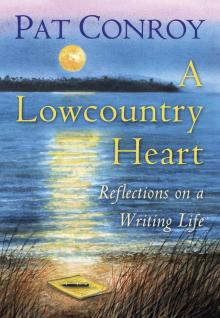 A Lowcountry Heart: Reflections on a Writing Life
A Lowcountry Heart: Reflections on a Writing Life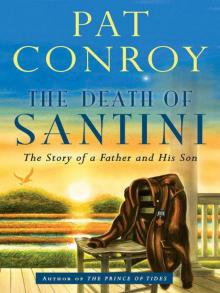 The Death of Santini: The Story of a Father and His Son
The Death of Santini: The Story of a Father and His Son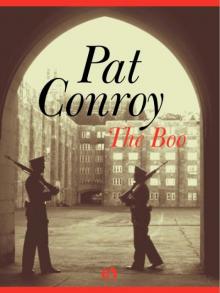 The Boo
The Boo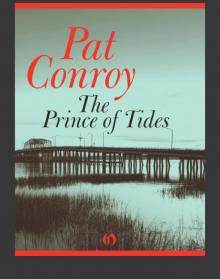 The Prince of Tides
The Prince of Tides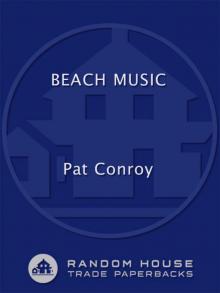 Beach Music
Beach Music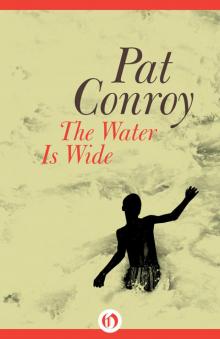 The Water Is Wide
The Water Is Wide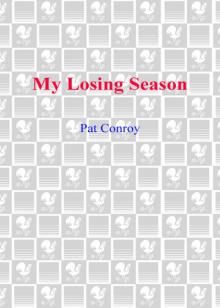 My Losing Season
My Losing Season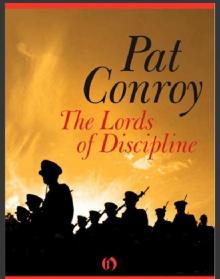 The Lords of Discipline
The Lords of Discipline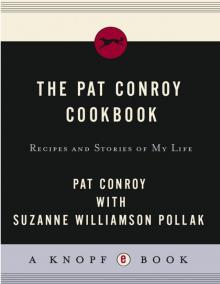 Pat Conroy Cookbook
Pat Conroy Cookbook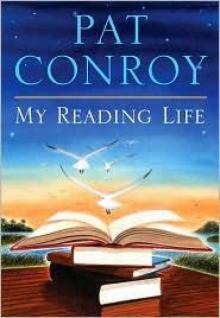 My Reading Life
My Reading Life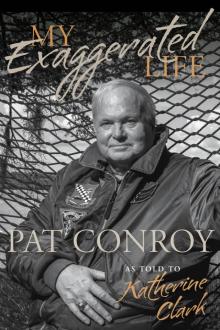 My Exaggerated Life
My Exaggerated Life The Pat Conroy Cookbook
The Pat Conroy Cookbook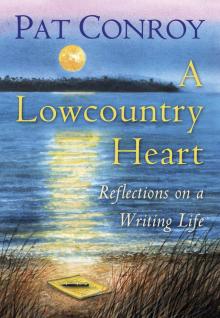 A Lowcountry Heart
A Lowcountry Heart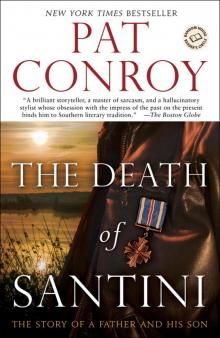 The Death of Santini
The Death of Santini